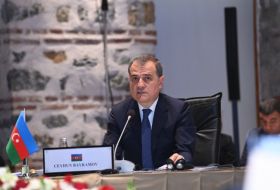From 2 Tax-Evasion Sentences, a Lesson Comes

The sentencings, handed down in federal courtrooms roughly 1,200 miles apart in West Palm Beach, Fla., and Manhattan, involved a military doctor from Jupiter, Fla., and a widowed Palm Beach heiress and charity benefactor. The two are the latest of dozens netted in the four-year federal crackdown on hiding income from the IRS in Switzerland and other tax havens.
The physician, Michael Canale, 62, pleaded guilty in New York federal court last December to willful failure to notify the IRS about Swiss bank accounts that in 2010 held nearly $1.5 million. His lawyers argued in a sentencing memorandum that Canale was punished enough by paying more than $1 million in back taxes and penalties, plus accepting a felony conviction that forced him to retire from his Department of Veterans Affairs medical post after nearly 30 years of military service.
While acknowledging that Canale "made a serious mistake," attorney Robert Fink wrote that his client inherited the account from his father, who gave orders to keep it secret.
Citing Canale`s long career, the defense lawyer characterized him as "a genuine American hero, who has served his country selflessly as a combat military doctor" by helping "countless Army personnel and civilians around the world."
However, the Manhattan U.S. Attorney`s office argued Canale evaded at least $216,000 in federal taxes on income from an account his father originally opened at Swiss banking giant UBS and later shifted to Wegelin & Co., another Swiss bank. Canale knew about the account since at least 1993, and inherited it in 2000, court records show.
"He could have, at any time, ceased his criminal conduct by disclosing the account or even simply closing the account. He chose to do none of those things," wrote Assistant U.S. Attorney Jason Cowley.
Noting that Canale`s control of the funds was disguised by the bank account name Wanderlust Foundation, Cowley argued that U.S. District Court Judge Denise Cote should impose a sentence that includes "at least some substantive term of incarceration" in order "to deter others who would engage in similar misconduct."
Cote sentenced Canale to six months in federal prison, substantially less than the 24-to-30 months called for under federal sentencing guidelines. But she indicated that accepting defense arguments for probation would not provide the deterrent effect sought by the government. Canale was also fined $100,000, ordered to pay more than $216,000 in restitution and perform 400 hours of community service providing rehabilitative medical care.
Like Canale, Palm Beach heiress Mary Estelle Curran, 79, pleaded guilty in January to filing two years of false tax returns on a UBS account that concealed up to $43 million from the IRS.
Like Canale`s attorneys, her lawyers argued that Curran suffered financially by paying nearly $21.7 million in penalties, plus more than $667,716 in overdue taxes and interest on income in an account under the name Flognet Foundation.
Curran, like Canale, inherited the account — in her case from her husband, Mortimer, who opened it and controlled it through overseas bankers until his death.
And like Canale, the lawyers depicted Curran as lifelong giver and benefactor to national philanthropies such as The Red Cross, and local charities such as the Early Childhood Center in Palm Beach and a West 53rd Street soup kitchen in Manhattan.
The similarities ended there.
"Strong mitigating circumstances favoring Mrs. Curran ... make this far from the typical offshore tax case," defense attorneys Roy Black and Nathan Hochman wrote in a sentencing memorandum to U.S. District Judge Kenneth Ryskamp in West Palm Beach.
When Curran learned in 2008 that the UBS account could be subject to federal taxes, she hired an attorney with the aim of coming clean to the IRS.
But that attorney delayed for approximately one month, Curran`s current lawyers wrote. As a result, federal investigators already had obtained Curran`s name and account data from UBS before she contacted them.
UBS agreed to give U.S. authorities information about thousands of present and former American clients under a deferred-prosecution deal. The agreement, which also included a $780 million payment, settled allegations that UBS sent its bankers on secret trips to the U.S. to help customers hide assets. The one-month delay in disclosing Curran`s information to the IRS made her ineligible for a leniency program, resulting in approximately $13 million in extra penalties, her attorneys wrote.
"Mrs. Curran received no immunity from prosecution and has been subject to the highest possible (IRS disclosure) penalty even though she made a good-faith effort" to come clean to the tax agency, her attorneys wrote.
The U.S. Attorney`s office in South Florida "does not oppose" the probation sentence recommended by a probation officer who examined the case, Curran`s attorneys noted.
Ryskamp sentenced Curran to one year of probation — and almost instantly terminated the punishment. Calling the case unfortunate, he urged her to file a pardon request with the White House.
"The judge said, `You`ve now been on probation for five seconds,` " said defense attorney Nathan Hochman. "In my 25 years of practice as a prosecutor and a defense attorney, this sentencing was unprecedented."












































